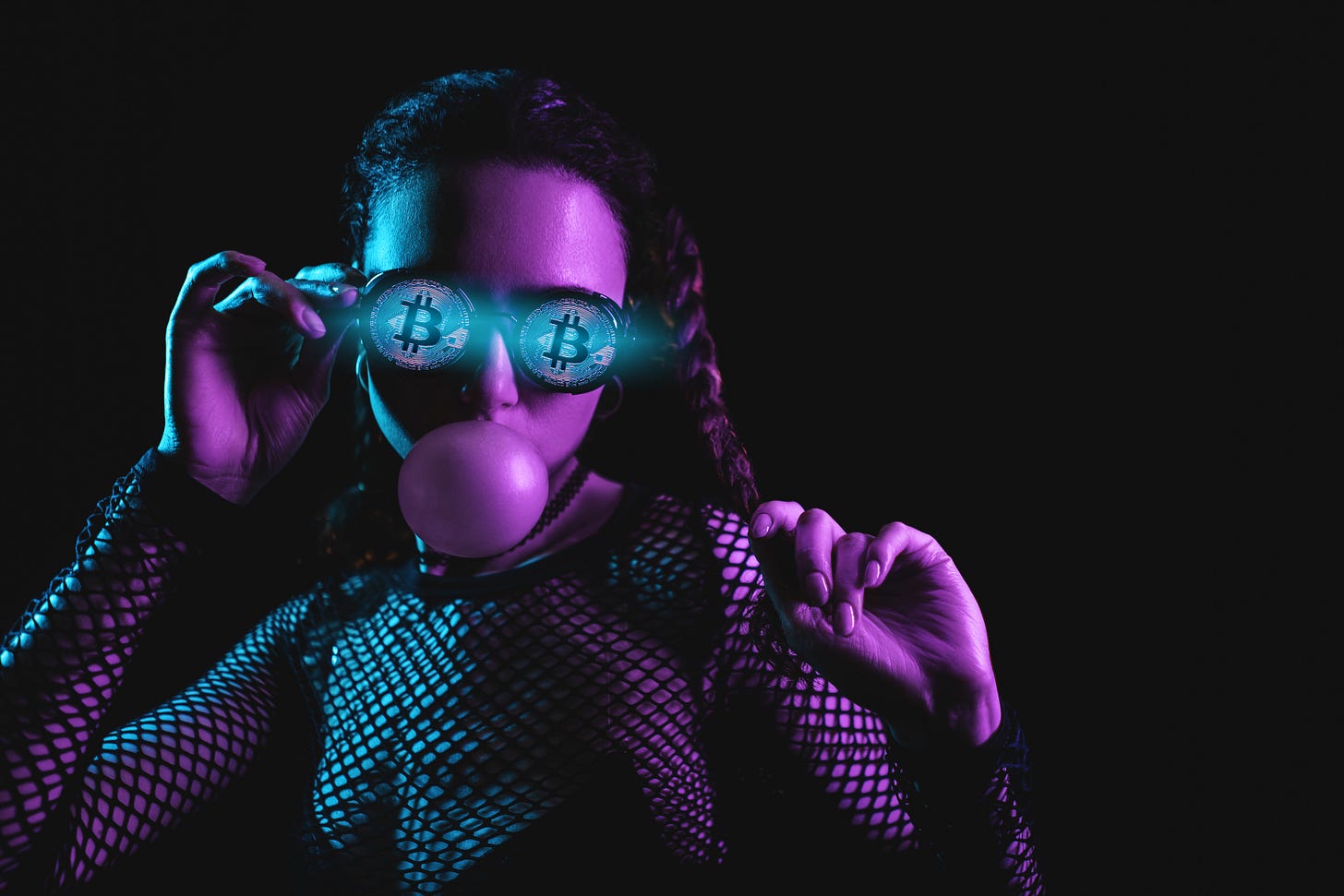The NFT Bubble Will Burst
The only incentive to buy pointers to digital assets is greater fool theory on steroids
The NFT (non-fungible token) market is vast. Worth an estimated $45 to $50 billion, its popularity has soared in recent years. It’s also a bubble — and a rapidly inflating one at that.
Just this week, an NFT art project sold for more than $90million, making it one of the most expensive pieces of art ever sold. Around 28,000 buyers bought shares or ‘digital tokens’ in ‘The Merge’ (which looks like a glorified ping pong ball), in the hope that one day their investment will mature.
NFTs are complex, but essentially they are digital tokens stored on a blockchain that point to a web address or another location, containing a piece of art, audio, video, or even physical works — literally anything anyone is willing to “acquire”. They’re basically another type of cryptocurrency, except they cannot be replicated on the same blockchain.
Yet here’s the catch. Owning an NFT grants you “digital property rights”, which sounds awfully official, but in reality, you receive a pretend ownership — for what will likely be an outlandish price tag. In other words, it’s an imaginary contract of ownership between buyers and sellers of digital air. Not only does the artist retain the real-world copyright, but anyone can create another NFT pointing to the same asset on one of another potentially unlimited number of blockchains. Outside the “metaverse”, a term that the crypto has now tried to commandeer, your NFT ownership means zilch, granting you zero property or legal rights — taking George Carlin’s “Rights aren’t rights … They’re temporary privileges” to a whole new level.
The mania over NFTs bears all the hallmarks of a classic bubble: colossal valuations, greater fool theory, and its first adopters bragging about substantial, unrealized profits. You could even pinpoint the moment when NFTs officially entered bubble status when speculators started paying seven figures for a link to a cartoon rock. No one in their right mind could honestly claim that this was a sound investment, unless they were looking to unload it onto another sucker.
Fortunately, skepticism surrounding the NFT industry is building. It has drawn together unlikely alliances between the Left and Right, from environmentalists concerned about crypto’s effects on climate change to Right-wing gold bugs claiming that cryptocurrencies have “no intrinsic value”. Stephen Diehl, crypto’s most prominent critic, has seen almost every multi-thread tweet he’s created go viral recently. Meanwhile, TV actor Ben Mckenzie has become a full-time journalist pursuing an anti-crypto agenda, calling out other celebrities engaging in crypto swindles.
Eventually, these people will be vindicated that NFTs were nothing more than a techno-futurist grift. The bubble will burst, and a sea of naive investors will watch their digital authentications of nothingness plunge to a value of near-zero. Unfortunately, they can’t say they weren’t warned — all the red flags were there from the beginning.



